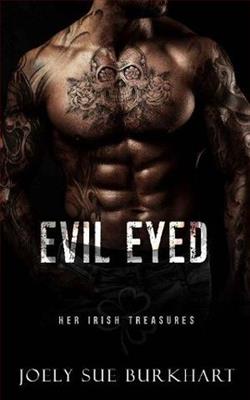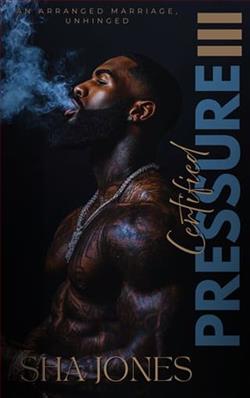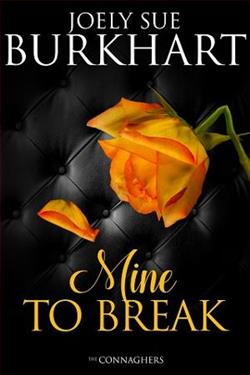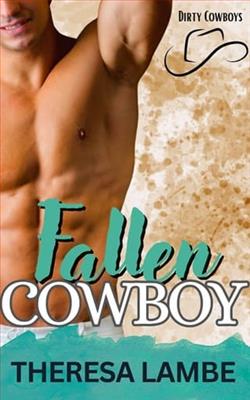Page 85 of It Happened on the Lake
But so what?
Right now, considering everything that was happening, Harper needed all the help she could get.
A small dose of divine intervention wouldn’t be such a bad thing.
Chapter 21
While nursing a bottle of Budweiser, Rand sifted through the old files in his home office, the loft of his A-frame, a room that had once been his bedroom. The workplace was makeshift at best. His old man’s battle-scarred desk was situated beneath the windows that overlooked the lake—a spot where his twin bed had once resided.
Four old, pre-computer files were stacked on the desk. The important information he tacked to the old bulletin board, again from his father, so he could glance at the facts while working. Along with the folders Chelle had dug up on Olivia Dixon and Chase Hunt, he’d added Anna Reed and her son, Evan. His one-time friend. What had his mother said about Evan Reed? “Spoiled rotten and whip-smart. A deadly combination.”
Barbara Watkins had been right.
As he skimmed the thin files, he had the uneasy feeling that they were incomplete, as if whoever had investigated the cases hadn’t been thorough, or at least not as thorough as police procedures and practices were today. He reminded himself these were not homicide files. None of the deaths had been the result of murder. Just deaths that were investigated. As he read the reports, he made notes because each file brought up more questions than answers.
Worse yet, his old man’s name was listed as the lead investigator in every case. Gerald Watkins’s slanted handwriting and signature were on all of the files. Other officers were listed as taking down information, of course. Thomas Hunt, Dorothy Thiazine, and William McKenna, who were no longer with the department, had taken eyewitness reports. However, Chuck Fellows and Ned Gunderson were still on the force and might have some answers.
Sipping his beer, he read each of the statements twice.
From what he pieced together, it seemed that Olivia Dixon’s death had been ruled an accidental overdose of sleeping pills and booze. Specifically barbiturates, chloral hydrate, and gin.
That Harper had administered.
Accidentally.
He believed that much.
Harper was many things. But not a killer. At least not in his estimation.
But what did he really know about her? He’d pledged to his best friend that if anything happened to Chase, he would take care of her. That had proved impossible. He’d shipped out, she’d moved to California, and before his next leave to the States, she’d gotten married to some guy he’d never heard of. Joel Prescott, he now knew. Once she was married and had a baby, he figured his promise to Chase was no longer valid. By the time Rand’s tour of duty was over and he’d been discharged, Harper was a wife and mother.
Now she was divorced.
And a rich woman who didn’t need his help in any way, shape, or form. He had witnessed that himself earlier today.
She had a temper.
No doubt about it.
And some people, Cynthia Hunt included, had been vocal about Harper’s guilt. Cynthia had been certain Harper had killed her grandmother with a mixture of pills and alcohol and had been somehow involved in Chase’s disappearance.
Thinking, Rand drummed his fingers on the desk. He located and read the statement of Matilda Burroughs, Olivia Dixon’s caretaker.
In it Matilda swore that she left the right dosage of medication for Harper to give to her grandmother. All the girl had to do was be careful andnotallow the old woman to drink alcohol.
While Harper had insisted she gave her grandmother the amount of pills the caretaker left in the kitchen, Matilda had said confidently that she hadn’t made a mistake in dosage. In the side notes taken by his own father, Gerald noted that the caretaker was visibly distraught and affronted. Gerald also wrote that the woman called Harper “a self-involved little whore who had left her grandmother to die while out doing the nasty with her boyfriend!” That phrase was left off her official handwritten statement.
He found another note stating that after her oldest daughter’s graduation from high school a few months later, Matilda had packed up her family and moved to Canada.
He snagged his longneck, nearly draining the bottle, and wrote himself a reminder to track Matilda Burroughs down. As he set the near-empty bottle on the desk again, he glanced up and stared through the window and across the lake. To Dixon Island, where lights shone from some of the windows in that behemoth of a house. He wondered how long Harper would stay in Almsville. Probably just long enough to sell the whole kit and caboodle, pocket her fortune, and leave.
Not that it mattered to him.
As he stood, his shoulder twinged again, a pain that never quite went away, compliments of the shrapnel still buried there. He’d tried and failed to convince himself that the soreness was all in his head, that the continuous ache was like the nightmares that sometimes plagued him, part of the war that would forever be his mental companion.
Shaking the feeling off, he drained his beer and carried his empty downstairs. He left the bottle in an empty six-pack carton in the laundry room where like six-packs were stacked before walking barefoot outside, the boards of the deck wet and cool.
Clouds moved slowly over a quarter moon, and the air was heavy and damp, but no rain was falling at the moment. Even the breeze had died to a whisper.















